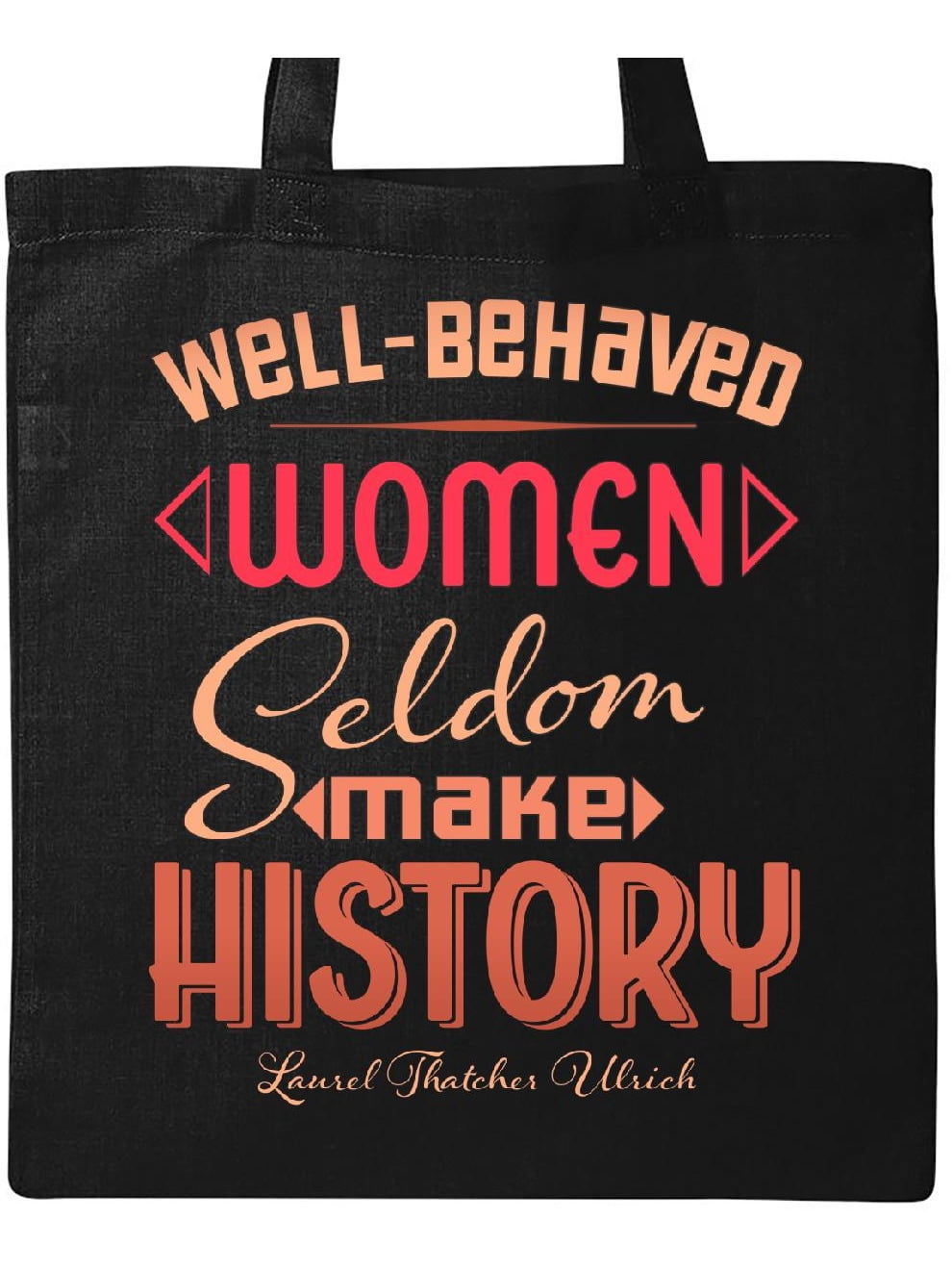

She argued that “ordinary” women who don’t happen to marry future presidents…or lead the way to be the first in their fields…or get burned at the stake are rarely remembered by History with a capital H.īut when it comes to the handful of extraordinary, accomplished women who routinely get remembered during Women’s History Month, K-12 curricula or popular celebrations rarely go deeper than a two-dimensional, sanitized version of their lives. We just cannot get very far without the other.“Well-behaved women seldom make history,” wrote Harvard historian Laurel Thatcher Ulrich memorably in 1976. Unknown women whose thoughts will not probably be quoted in public protests or gatherings, but whose hearts and actions will always make a difference.īoth kinds are important and relevant in making contributions to this world. But I have also been galvanized, touched and counseled by the example, attitude, wisdom, and behavior of common women: neighbors, members of the church, mothers, professors. The ones we see and listen to and immediately feel a sense of belonging, of purpose, a source of inspiration. I have been inspired by political leaders, historical figures and controversial women. There is a place for both: the loud and the quiet. That is what makes this sentence so powerful: precisely because it touches on multiple truths in subtle ways. However, history is rarely made in those places, even though in part, it is. And what could be more important than that? Places all of us have been to in order to become who we are. Places far from the media reach, far from the trends. These women make remarkable deeds within their circles: homes, libraries, schools, churches. There are women everywhere affecting and changing the course of society, we just don’t see them all in the news. As Ulrich found, “it is in the very dailiness, the exhaustive, repetitious dailiness, that the real power lies… living has to be measured in doing.” Behold all the women. She managed to develop innovative ways to look at history from the perspective of the subjects of study. while raising her kids “back in the day”. A mother of five children herself, Laurel worked on her Ph.D. Her own life is reflective of this quote. But Ulrich never meant to say that well-behaved women are weak. And the misconception around this quote is a manifestation of that truth.

But it was merely a statement of fact: the quiet and compliant rarely get attention or credit for their accomplishments. Most people interpret this quote to mean that in order to change the world and make a difference one must be loud, aggressive, bold. The quote was first published in an academic paper about Puritan women.

A feminist Mormon and Harvard professor whose work has been dedicated to telling the stories of quiet, ordinary people. That well-known quote that we have seen many times in feminist circles comes from a Pulitzer Prize-winning Idahoan historian, author, and educator.


 0 kommentar(er)
0 kommentar(er)
